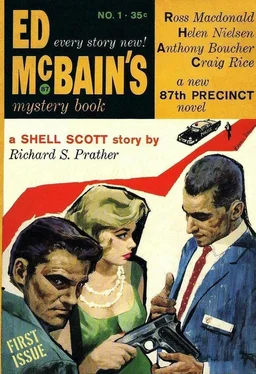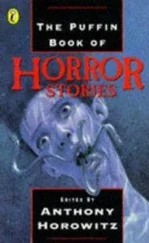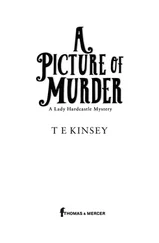Anthony Boucher - Ed McBain’s Mystery Book, No. 1, 1960
Здесь есть возможность читать онлайн «Anthony Boucher - Ed McBain’s Mystery Book, No. 1, 1960» весь текст электронной книги совершенно бесплатно (целиком полную версию без сокращений). В некоторых случаях можно слушать аудио, скачать через торрент в формате fb2 и присутствует краткое содержание. Город: New York, Год выпуска: 1960, Издательство: Pocket Books, Жанр: Детектив, на английском языке. Описание произведения, (предисловие) а так же отзывы посетителей доступны на портале библиотеки ЛибКат.
- Название:Ed McBain’s Mystery Book, No. 1, 1960
- Автор:
- Издательство:Pocket Books
- Жанр:
- Год:1960
- Город:New York
- ISBN:нет данных
- Рейтинг книги:5 / 5. Голосов: 1
-
Избранное:Добавить в избранное
- Отзывы:
-
Ваша оценка:
- 100
- 1
- 2
- 3
- 4
- 5
Ed McBain’s Mystery Book, No. 1, 1960: краткое содержание, описание и аннотация
Предлагаем к чтению аннотацию, описание, краткое содержание или предисловие (зависит от того, что написал сам автор книги «Ed McBain’s Mystery Book, No. 1, 1960»). Если вы не нашли необходимую информацию о книге — напишите в комментариях, мы постараемся отыскать её.
Ed McBain’s Mystery Book, No. 1, 1960 — читать онлайн бесплатно полную книгу (весь текст) целиком
Ниже представлен текст книги, разбитый по страницам. Система сохранения места последней прочитанной страницы, позволяет с удобством читать онлайн бесплатно книгу «Ed McBain’s Mystery Book, No. 1, 1960», без необходимости каждый раз заново искать на чём Вы остановились. Поставьте закладку, и сможете в любой момент перейти на страницу, на которой закончили чтение.
Интервал:
Закладка:
“This squadroom is your home, Meyer,” Carella said. “Admit it.”
“Sure,” Meyer answered, grinning. “I can’t wait to come to work each day.” He passed a hand over his bald pate. “You know what I like especially about this place? The interior decoration. The decor. It’s very restful.”
“Oh, you don’t like your fellow workers, huh?” Carella said. He slid off the desk and winked at Cotton Hawes, who was standing at one of the filing cabinets. Then he walked toward the water cooler at the other end of the room, just inside the slatted railing that divided squadroom from corridor. He moved with a nonchalant ease that was deceptive. Steve Carella had never been one of those weight-lifting goons, and the image he presented was hardly one of bulging muscular power. But there was a quiet strength about the man and the way he moved, a confidence in the way he casually accepted the capabilities and limitations of his body. He stopped at the water cooler, filled a paper cup, and turned to look at Meyer again.
“No, I like my colleagues,” Meyer said. “In fact, Steve, if I had my choice in all the world of who to work with, I would choose you honorable, decent guys. Sure.” Meyer nodded, building steam. “In fact, I’m thinking of having some medals cast off, so I can hand them out to you guys. Boy, am I lucky to have this job! I may come to work without pay from now on. I may just refuse my salary, this job is so enriching. I want to thank you guys. You make me recognize the real values in life.”
“He makes a nice speech,” Hawes said.
“He should run the lineup. It would break the monotony. How come you don’t run the lineup, Meyer?”
“Steve, I been offered the job,” Meyer said seriously. “I told them I’m needed right here at the 87th, the garden spot of all the precincts. Why, they offered me chief of detectives, and when I said no, they offered me commissioner, but I was loyal to the squad.”
“Let’s give him a medal,” Hawes said, and the telephone rang.
Meyer lifted the receiver. “87th Squad. Detective Meyer. What? Yeah, just a second.” He pulled a pad into place and began writing. “Yeah, I got it. Right. Right. Right. Okay.” He hung up. Carella had walked to his desk. “A little colored girl,” Meyer said.
“Yeah?”
“In a furnished room on South Eleventh.”
“Yeah?”
“Dead,” Meyer said.
2
The city doesn’t seem to be itself in the very early hours of the morning.
She is a woman, of course, and time will never change that. She awakes as a woman, tentatively touching the day in a yawning, smiling stretch, her lips free of color, her hair tousled, warm from sleep, her body richer, an innocent girlish quality about her as sunlight stains the eastern sky and covers her with early heat. She dresses in furnished rooms in crummy rundown slums, and she dresses in Hall Avenue penthouses, and in the countless apartments that crowd the buildings of Isola and Riverhead and Calm’s Point, in the private houses that line the streets of Bethtown and Majesta, and she emerges a different woman, sleek and businesslike, attractive but not sexy, a look of utter competence about her, manicured and polished, but with no time for nonsense, there is a long working day ahead of her. At 5:00 a metamorphosis takes place. She does not change her costume, this city, this woman, she wears the same frock or the same suit, the same high-heeled pumps or the same suburban loafers, but something breaks through that immaculate shell, a mood, a tone, an undercurrent. She is a different woman who sits in the bars and cocktail lounges, who relaxes on the patios or on the terraces shelving the skyscrapers, a different woman with a somewhat lazily inviting grin, a somewhat tired expression, an impenetrable knowledge on her face and in her eyes: she lifts her glass, she laughs gently, the evening sits expectantly on the skyline, the sky is awash with the purple of day’s end.
She turns female in the night.
She drops her femininity and turns female. The polish is gone, the mechanized competence; she becomes a little scatterbrained and a little cuddly; she crosses her legs recklessly and allows her lipstick to be kissed clear off her mouth, and she responds to the male hands on her body, and she turns soft and inviting and miraculously primitive. The night is a female time, and the city is nothing but a woman.
And in the empty hours she sleeps, and she does not seem to be herself.
In the morning she will awake again and touch the silent air in a yawn, spreading her arms, the contented smile on her naked mouth. Her hair will be mussed, we will know her, we have seen her this way often.
But now she sleeps. She sleeps silently, this city. Oh, an eye open in the buildings of the night here and there, winking on, off again, silence. She rests. In sleep we do not recognize her. Her sleep is not like death, for we can hear and sense the murmur of life beneath the warm bedclothes. But she is a strange woman whom we have known intimately, loved passionately, and now she curls into an unresponsive ball beneath the sheets, and our hand is on her rich hip. We can feel life there, but we do not know her. She is faceless and featureless in the dark. She could be any city, any woman, anywhere. We touch her uncertainly. She has pulled the black nightgown of early morning around her, and we do not know her. She is a stranger, and her eyes are closed.
The landlady was frightened by the presence of policemen, even though she had summoned them. The taller one, the one who called himself Detective Hawes, was a redheaded giant with a white streak in his hair, a horror if she’d ever seen one. The landlady stood in the apartment where the girl lay dead on the rug, and she talked to the detectives in whispers, not because she was in the presence of death, but only because it was 3:00 in the morning. The landlady was wearing a bathrobe over her gown. There was an intimacy to the scene, the same intimacy that hangs alike over an impending fishing trip or a completed tragedy. Three A.M. is a time for slumber, and those who are awake while the city sleeps share a common bond that makes them friendly aliens.
“What’s the girl’s name?” Carella asked. It was 3:00 in the morning, and he had not shaved since 5:00 P.M. the day before, but his chin looked smooth. His eyes slanted slightly downward, combining with his clean-shaven face to give him a curiously oriental appearance. The landlady liked him. He was a nice boy, she thought. In her lexicon the men of the world were either “nice boys” or “louses.” She wasn’t sure about Cotton Hawes yet, but she imagined he was a parasitic insect.
“Claudia Davis,” she answered, directing the answer to Carella whom she liked, and totally ignoring Hawes who had no right to be so big a man with a frightening white streak in his hair.
“Do you know how old she was?” Carella asked.
“Twenty-eight or twenty-nine, I think.”
“Had she been living here long?”
“Since June,” the landlady said.
“That short a time, huh?”
“And this has to happen,” the landlady said. “She seemed like such a nice girl. Who do you suppose did it?”
“I don’t know,” Carella said.
“Or do you think it was suicide? I don’t smell no gas, do you?”
“No,” Carella said. “Do you know where she lived before this, Mrs. Mauder?”
“No, I don’t.”
“You didn’t ask for references when she took the apartment?”
“It’s only a furnished room,” Mrs. Mauder said, shrugging. “She paid me a month’s rent in advance.”
“How much was that, Mrs. Mauder?”
“Sixty dollars. She paid it in cash. I never take checks from strangers.”
Читать дальшеИнтервал:
Закладка:
Похожие книги на «Ed McBain’s Mystery Book, No. 1, 1960»
Представляем Вашему вниманию похожие книги на «Ed McBain’s Mystery Book, No. 1, 1960» списком для выбора. Мы отобрали схожую по названию и смыслу литературу в надежде предоставить читателям больше вариантов отыскать новые, интересные, ещё непрочитанные произведения.
Обсуждение, отзывы о книге «Ed McBain’s Mystery Book, No. 1, 1960» и просто собственные мнения читателей. Оставьте ваши комментарии, напишите, что Вы думаете о произведении, его смысле или главных героях. Укажите что конкретно понравилось, а что нет, и почему Вы так считаете.












